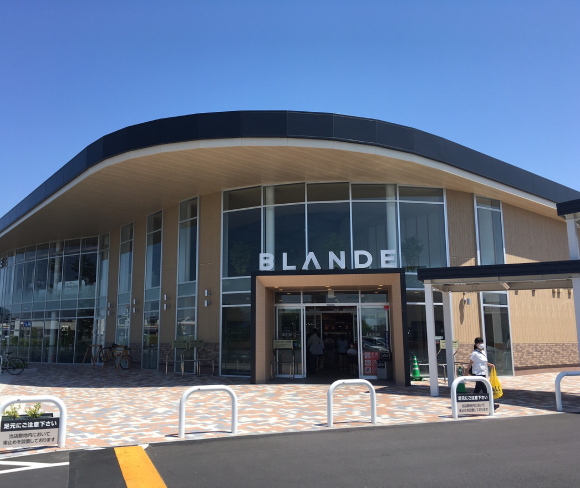United Super Markets Holdings Inc.
Creating a more enjoyable shopping experience with DX
United Super Markets Holdings Inc. (USMH) provides customers with a more enjoyable and stress-free shopping experience by enabling them to bypass cash register waiting lines and pay for their purchases via smartphone. The payment system is part of an ongoing digital transformation at USMH utilizing Fujitsu’s retail headless commerce platform "Flexible Commerce".
Challenge
With growing demand for more personalized shopping services, the client needed a flexible and agile platform for rapid service development and deployment in the retail market.
Solution
Fujitsu Flexible Commerce* platform, which offers effortless integration of back-end and front-end services.
Outcomes
- Lead time for the introduction of new digital services has been cut in half.
- Rapid introduction of a “Scan&Go Ignica**” smartphone app has revolutionized the customer shopping experience.
- Enhanced development agility enables monthly enhancements to service functionality to be rolled out quickly.
By integrating smartphones into our payment infrastructure, we’re redefining the very nature of the retail business.
Taiji Sumino, VP of Digital Transformation Dept and Program Manager of DX Development Bureau, United Super Markets Holdings Inc

50%
cut in new service introduction lead time
- Industry: Food retailer
- Location: Japan
- People: 7,330
- Customer's website

About the Customer
United Super Markets Holdings (USMH) is a joint holding company established in 2015 through the merger of three supermarket chains: Maruetsu, Kasumi and Maxvalu Kanto. The company operates 521 stores in the Tokyo metropolitan area and Chiba, Saitama, Kanagawa, Ibaraki, Tochigi, and Gunma prefectures.
Accelerating digitalization in the retail space
United Super Markets Holdings (USMH) has introduced a series of innovative digital services for consumers, including the development of a shopping app that allows customers to pay for purchases with their smartphones without waiting in line at the cash register. Based on the OMO (Online-Merge-Offline) concept, the company is accelerating DX with greater bidirectional interaction between online and offline business models.
The key to advancing OMO is the linkage between back-end core systems that handle payment and authentication, and front-end apps and signage that serve as touchpoints for customers. Until now, however, the time and cost required to link these two systems has been a major concern for developers when implementing various types of services.
Flexible integration of back end and front end
In response to this challenge, USMH adopted Fujitsu’s retail headless commerce platform "Flexible Commerce", creating an environment in which the front end can be quickly connected to the back end via cloud-based APIs. Previously, each sales channel had its own separate system, and it was necessary to create a new linkage mechanism in order to launch new services. The new environment allows developers to focus more directly on the front end and service development.
Since adopting the Fujitsu Flexible Commerce* platform, USMH has been able to introduce new services in rapid succession. These have included its “Scan&Go Ignica**” smartphone-based payment system, as well as “Online Delivery,” a smartphone-based online supermarket, and “Office Smart Shop**", unmanned shops for office building locations. Most recently, the company launched a loyalty program for customers of BLANDE, a new type of supermarket operated by Kasumi. The program issues special coupons and invitations to in-store lounges that leverage the smartphone customer touchpoint, and has helped boost “Scan&Go Ignica**” usage above 30%.
Purchasing data accumulated on the platform has also strengthened the connection between the store and its users by enabling more accurate product. In the future, the company plans to make even more effective use of this data by automatically recommending products based on the results of cluster analysis, and automatically creating a feedback loop that verifies the accuracy of those recommendations.
Agile development continues to create new business models
The adoption of the Fujitsu Flexible Commerce platform enables USMH to pursue much more agile development. Based on the Minimum Variable Product (MVP) concept, the company strives to add new functionality to its suite of services every month.
Another key to agile development is the strong collaboration between USMH and Fujitsu. Key members from both companies—as well as representatives from the companies that actually operate the stores—hold regular meetings to ensure quick decision-making and ensure that everyone is on the same page.
“At first, the operating companies didn’t really understand the benefits of agile development. But having seen the result, their awareness has changed to the point where they are now playing a leading role in many projects,” says Taiji Sumino, VP of Digital Transformation Dept and Program Manager of DX Development Bureau in USMH. “Fujitsu Flexible Commerce has cut the time it takes us to launch new services in half, and as smartphones become even more integral to retail industry infrastructure, we will continue to introduce new services to create new types of businesses that have never existed before,” he says.
In addition, Mr. Sumino said he was looking forward to collaborating with Fujitsu even more in the future—as both a creative partner in developing new services and as a technology expert for in-house training in advanced technologies—as USMH continues to pursue DX initiatives in the retail sector.
*Product name for “Fujitsu Flexible Commerce” was “Brainforce API Platform” in Japan.
**Consumer facing service name by USMH

